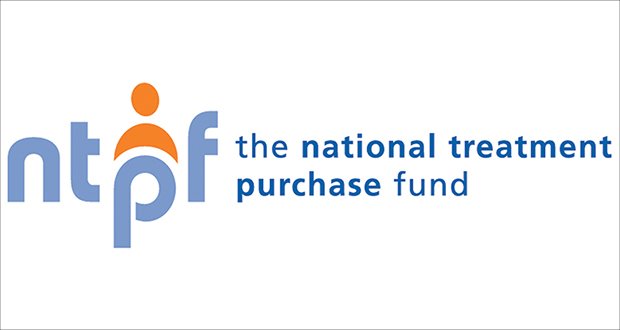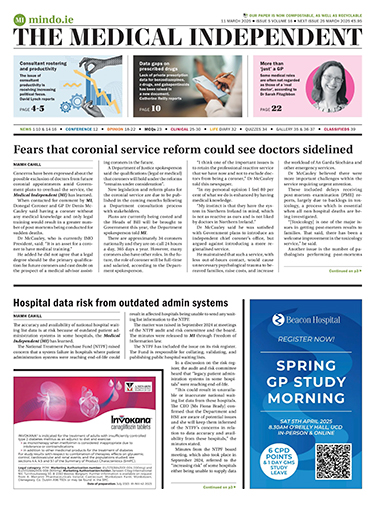Use of the National Treatment Purchase Fund (NTPF) to help tackle hospital waiting lists was ‘reactivated’ under the programme for government and confidence and supply arrangement between Fine Gael and Fianna Fáil in 2016.
But the NTPF’s role and reach may change if either party leads the next Government.
According to the Fine Gael general election manifesto, the party has “dramatically increased” funding to the NTPF, reducing the time that patients wait for common hospital operations and procedures.
“In 2020, there will be a significant focus on ear, nose and throat (ENT), orthopaedics, dermatology, ophthalmology, urology and gynaecology, as well as scopes, diagnostics and children’s waiting lists. Under Fine Gael, the NTPF is now investing in the public health service. Fine Gael will reform the NTPF and develop it into a National Treatment Access Fund. This will allow us to treat more patients in the community.”
Speaking exclusively to the Medical Independent (MI), outgoing Minister for Health Simon Harris said: “I want to reform the NTPF. Fianna Fáil’s plan seems to be just to hike a load of money into the NTPF and use it as a fund for private hospitals.
“I want to reform it and want to use it as an access fund, so I want to see us spend more money in the public health service, investing in opening up more theatres, and if I am returned for Minister for Health and if Fine Gael are back in Government we will amend the rules under which the NTPF operates to allow it assist in providing diagnostic services in our community.”
He continued: “We now have 127 primary care services across the country. We need to have more diagnostic services, so people don’t need to go to hospitals to get their x-rays, or their MRIs, or their CAT scans, or their ultrasounds. So I would like to see the NTPF being used as a ring-fenced fund to help access, but not the old NTPF to be honest of the Celtic Tiger era.”
According to Fianna Fáil’s general election manifesto, the NTPF has a “crucial role” to play in addressing serious waiting list times as a short-term measure “while we expand capacity in the publicly-funded health sector”.
“We will use the expanded €200 million NTPF to help cut down on waiting lists that are hampering early assessment and treatment,” it states.
Speaking to MI, the party’s health spokesperson Mr Stephen Donnelly said Fianna Fáil got the NTPF reactivated in 2017, after former Minister James Reilly “turned it off in 2012”. He said the inpatient waiting list had been coming down due to the activation of the NTPF.
“If the NTPF hadn’t happened the inpatient lists would have gone up…the only thing that is stopping the entire system from collapsing is the NTPF over the past three years.”
Mr Donnelly said his party was advocating an “emergency” response to the deficits in healthcare, in tandem with delivering Sláintecare over the longer term.
He said there was a “suite of shorter term measures required to deal with the emergency now”. These included lifting the hiring embargo, ending new entrant pay inequality, immediate access to diagnostics, more home care hours and doubling the NTPF fund.
“The health system at the moment is like a pressure cooker that is about to blow…you have to take the pressure off the system first, you have to let our doctors and nurses breathe.”
Budget 2020 contained €100 million for the NTPF to help reduce waiting lists.
The number of people on the inpatient/day case waiting list as of December 2019 was 66,563, which compared with 81,468 in December 2017.
As of December, there were 553,434 people on the outpatient waiting list, compared with 500,800 in December 2017.
The full interviews on health policy with Minister Harris, Mr Donnelly, Sinn Fein’s Ms Louise O’Reilly, Social Democrats’ Ms Róisín Shortall, the Green Party’s Dr Séamus McMenamin, as well as from spokespersons for the Labour Party and People Before Profit, will be included in MI’s edition out on 6 February (e-copy 4 February).













Leave a Reply
You must be logged in to post a comment.